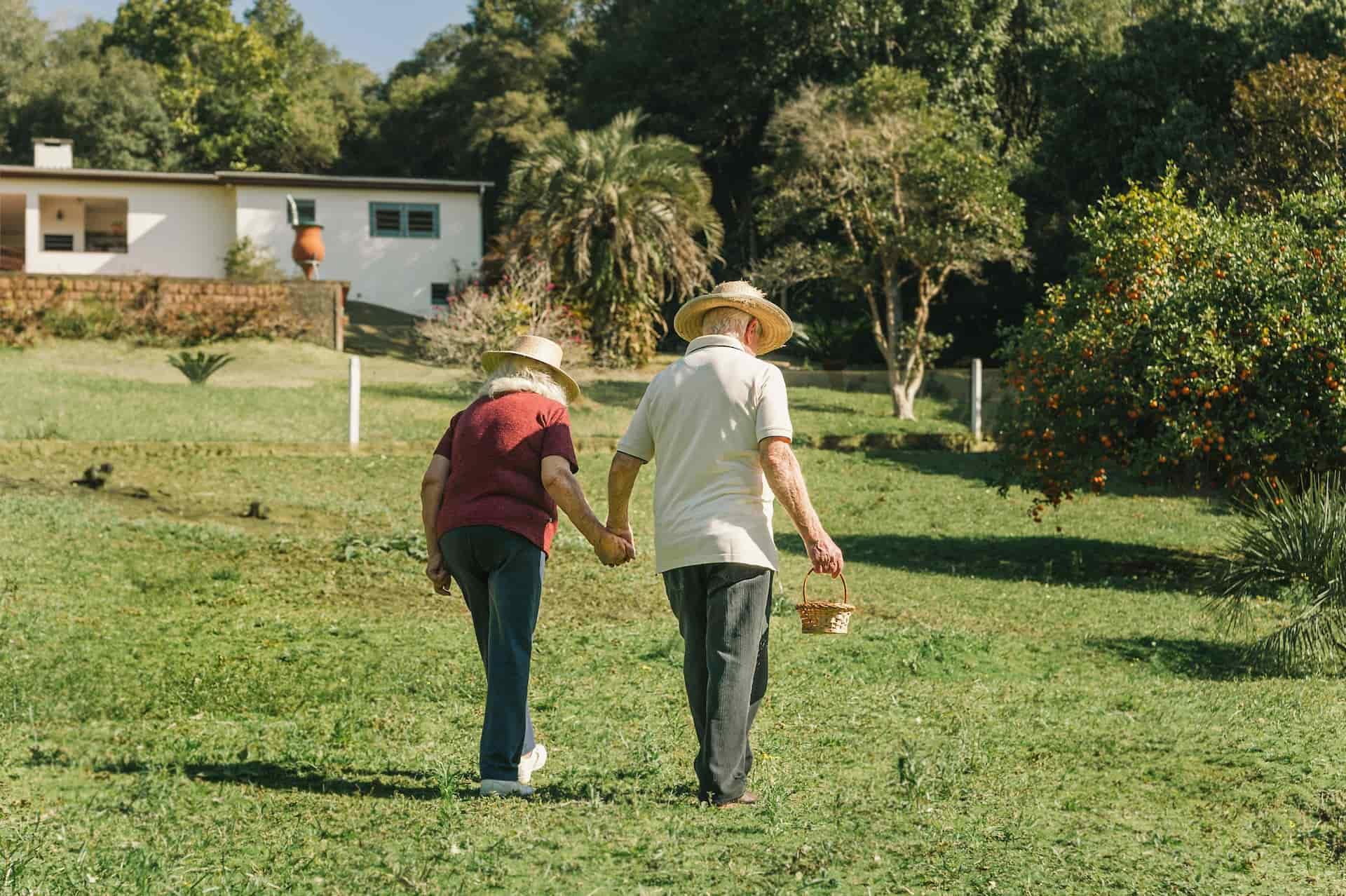Making the call to move your loved one into assisted living is a big deal - and totally natural to feel emotional about it. It's a major life change aimed at improving care and lifestyle. But it can also bring up feelings of worry, resistance, even guilt. We get it.
This guide is here to offer guidance and reassurance through this delicate process. Together, we'll thoughtfully work through the practical stuff, like downsizing and personalizing their new digs, with care and understanding.
Most of all, we encourage open chats to address concerns and remind you this move leads to an exciting new chapter full of community, caring routines, and a place to thrive.
Our comprehensive guide maps out each step so you can feel peaceful and confident during this change - for both yourself and your loved ones.
An Introduction to the Emotional Impact of Assisted Living

It's totally normal for seniors to feel all kinds of emotions about moving into assisted living. It's a huge life change, so feelings of worry, excitement - anything - make total sense.
First up, encourage open chats to acknowledge these feelings and show you hear them. Your loved one needs to know their concerns are valid. And remember, the best assisted living facilities are happy to answer questions anytime.
Fear of leaving home for somewhere new (especially when it's something like assisted living services) is common. Reassure them it's okay to feel anxious, and with support, getting settled into assisted living can be smooth. Paint a picture of what daily life looks like to ease worries.
Some may feel hopeful about less home maintenance, potential new buds, and on-call help. Others will grapple with losing independence or familiar routines.
The key is meeting them where they're at emotionally. Listen with care to concerns and be a source of reassurance during this challenging yet rewarding change. Their feelings matter.
With compassion, patience, and respect, you can guide your loved one through the emotions involved to embrace this new chapter. Support them in focusing on the promise of community and easier access to care.
Beginning the Conversation

Bringing up the topic of assisted living understandably requires sensitivity and compassion. Here are some tips for thoughtfully discussing this major life change with your family members and loved ones at the center of it all:
- Ease into the conversation casually, framing it as an open discussion rather than a unilateral decision. Provide context by mentioning communities you’ve researched and what daily life there entails.
- Focus the dialogue on improving their health, happiness, and quality of life in a supportive environment suited to their needs. Avoid framing assisted living facilities as simply a solution for their care.
- Revisit the conversation over multiple interactions, allowing time to process. This is an emotional change - don’t expect an immediate resolution.
- Encourage their active involvement in researching options and planning. This promotes a sense of control and eases reluctance.
- Practice empathetic listening regarding anxieties. Acknowledge this transition can be profoundly difficult on many levels. Validate their feelings.
With patience and respect, have heartfelt discussions focused on their wellbeing. Ensure they feel heard, and approach choices as a team. In time, the positives can become clear to all. Researching communities and even visiting helps make the change more tangible.
The goal is crafting a plan with their comfort and well-being at the center - together.
Planning the Move

Once there's an agreement in place, it's time to start thinking about the move.
We have plenty of guides available on our website when choosing the right senior living community for your loved one, or you can contact us any time for personalized advice on assisted living costs, health care costs, and things like this.
Once you've made a choice, it's time to start thinking about the move date.
Taking time to carefully plan your loved one's move can make their transition to assisted living much smoother. Here are some recommended steps:
- Begin planning early. Having ample time reduces stress and lets you handle all the details without feeling rushed or overwhelmed. Most assisted living communities are happy to reserve a spot and give you the time you need to get things set up and organized.
- Take inventory of your loved one's cherished belongings and daily necessities they'll want to bring. This helps ensure their new home has the comforts they need. It will also help you with planning the logistics of moving to your chosen assisted living communities.
- Downsizing limited space is often a reality, so view this move as an opportunity to thoughtfully declutter and organize. Make sure to involve your loved one out of respect for their possessions.
- Consider hiring professional movers specialized in senior relocations. Their expertise can significantly reduce the burden on you during this emotional time. This also gives you more time to focus on the important parts of the process, such as making sure your loved one is taken care of and you can support them in any way they need.
- Obtain a floor plan, if possible, so that you can pre-plan furniture layout and positioning for a smooth, organized move-in day. The best assisted living communities will have these on hand. This again gives your loved one more control over their daily living and move.
- Make arrangements to safely store important documents, family keepsakes, or any extra possessions. We want to make sure their treasures are protected.
- Notify doctors, banks, insurance, and any other key contacts about the address change. Handling logistics in advance is one less worry. If your loved one requires medical care, personal care, or memory care, now is the time to make arrangements and to pass on documentation and records.
Constant communication and including your loved one each step of the way increases familiarity and comfort with this change. We're here to guide you compassionately through the planning process.
Settling In: The First Few Weeks

The first few weeks after moving to assisted living residential facilities are typically the most challenging, as your loved one adjusts to their new home, gets familiar with the routine and new way of life, and meets the new people within the living facilities themselves. Both residents and carers.
- Your support during this pivotal transition makes all the difference. Here are some ideas that can help.
- Help establish daily routines that match their preferences, providing familiarity and stability amidst change. This is independent living, after all, and so there should be a degree of independence taking place.
- Encourage them to actively explore the community and what assisted living in Modesto is like. Introduce them to staff, neighbors, and facilities so they understand all the assisted living resources available for their well-being.
- Motivate participation in assisted living social activities and groups that match their interests. Connecting with like-minded peers enhances their sense of community and home.
- Check-in regularly and keep communication open. Listen to any concerns and validate their feelings during this transition. Ask questions like what nutritious daily meals are they having and do they feel as though they have a home-like setting?
- Find the right balance between support and independence. Allow them to make social connections and decisions, so they maintain dignity and autonomy.
By providing ample compassionate support, you can ensure a smoother adjustment into their new home and lifestyle. Together, pave the way for a fulfilling and enjoyable life in their caring assisted living community.
Handling Setbacks & Emotions
The transition to assisted living can understandably involve some emotional challenges and setbacks. This can come in all shapes and sizes, and it's best to be prepared so you know what to do if anything comes up.
Of course, we hope everything runs smoothly, and we've seen plenty of situations where people have moved into an assisted living facility and had no problems. Assisted living communities are set up to try and make this happen.
However, issues can occur, and recognizing them allows you to handle them compassionately.
- Homesickness and loneliness may arise as your loved one adjusts. Frequent visits, calls, and encouraging community bonds can help them feel at home. Make sure you make time in your life, especially during the first few weeks, to be available if needed.
- Feelings of grief over losing their former home or way of life are normal. Acknowledge this grief and provide emotional support as they focus on the positives ahead.
- Some resistance to new routines or social activities is common at first. Gently encourage participation while emphasizing the benefits and potential for new friendships.
If these emotional hurdles become overwhelming, don't hesitate to seek professional counseling support available through the community.
Remember, setbacks and difficult emotions are normal parts of such a major life transition. What matters most is responding with empathy, care, and reassurance. Your support lets your loved one know they are not alone during this challenging but ultimately rewarding change.
Staying Involved After the Move
Maintaining an active, supportive role in your loved one's life after their move is vital for their emotional well-being and transition. Here are some thoughtful ways to stay involved:
- Keep regular communication through phone calls, video chats, or letters. This provides reassurance that their support system remains strong.
- Make in-person visits whenever possible to see their new home, meet friends, and understand their routines. Your visits bring comfort and familiarity.
- Stay informed about their health, activities, and progress by communicating with the staff of your assisted living communities and participating in family meetings or community events.
- Coordinate with extended family to ensure your loved one receives frequent contact and visits. Strengthening these ties is key.
- Respect their new independence and routines while providing support where needed. Allow them to enjoy this new chapter, knowing you're there if needed.
Through this type of considerate, ongoing involvement, you demonstrate unconditional love and support. We want to ensure their overall happiness, quality of life, and smooth transition into this exciting new community, and being there and showing you care is the best way to go about it.
Conclusion
As we've explored, transitioning a loved one to assisted living can be both challenging and profoundly enriching. It requires planning, patience, empathy, and ongoing involvement.
Ultimately, this is a journey of compassion, love, and growth. Our common goal is securing your loved one's happiness, health, and welfare in their new caring community.
We know this process can feel overwhelming at times. Please remember you don't have to navigate it alone. Our team is here to support seniors and families through every step with advice, resources, and reassurance.
We're devoted to easing each transition with expertise and care. Your loved one's comfort and quality of life drive everything we do. Let us help guide you and your family through this meaningful journey.
Contact us anytime to learn more about our assistance for the Modesto, Oakdale, Riverbank, and Turlock areas.
We consider it a privilege to help during this major life change - one that leads to promising new beginnings.



